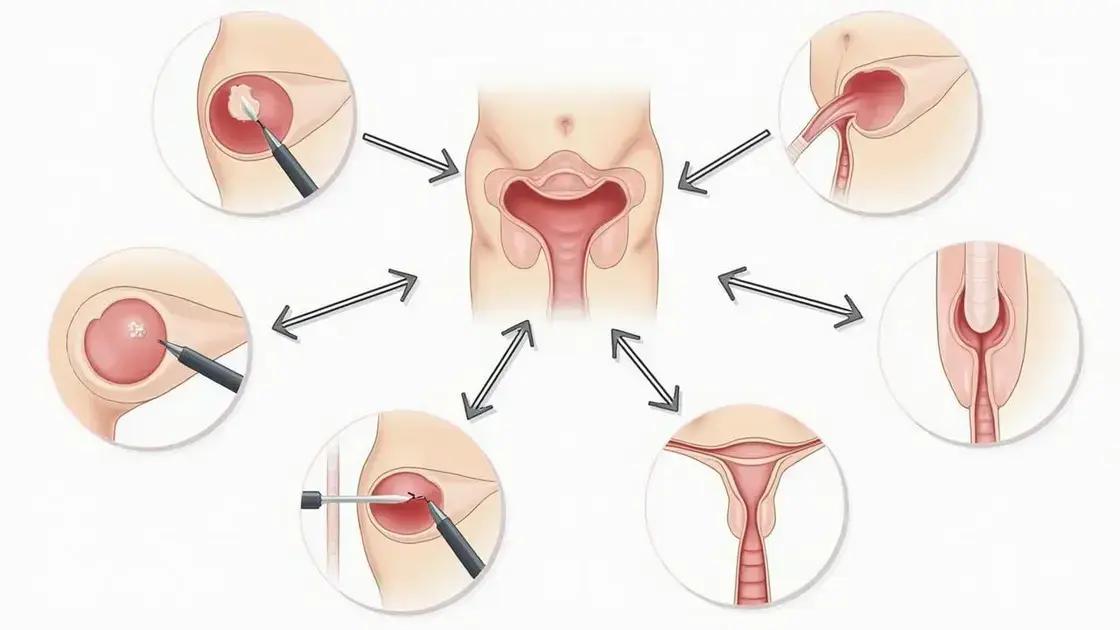Erectile dysfunction (ED) can occur after surgery due to physical damage to nerves or blood vessels, psychological effects like anxiety and lowered self-esteem, or as a side effect of medications. Management includes consulting healthcare providers, exploring treatments such as PDE5 inhibitors, and addressing psychological factors through therapy and open communication with partners.
After undergoing surgery, many patients wonder, “Can erectile dysfunction occur after surgery?” This concern is valid, as surgical procedures can impact various aspects of health, including sexual function. In this article, we’ll delve into how different surgeries may lead to erectile dysfunction (ED), explore the psychological ramifications of surgery, and provide insights on managing this condition. Understanding the connection between surgery and ED can empower patients to seek the necessary support and treatments post-operation.
Understanding Erectile Dysfunction

Erectile dysfunction (ED) is a common condition that affects many men, especially after significant health events like surgery. ED is defined as the inability to achieve or maintain an erection for satisfactory sexual performance. It can impact relationships and self-esteem, making it a vital area of discussion for those who have undergone surgical procedures.
Causes of Erectile Dysfunction
Various factors can lead to ED, including:
- Physical Health: Conditions such as diabetes, heart disease, and obesity can affect blood flow and nerve function.
- Surgical Impact: Surgeries, particularly those involving the pelvic area, can damage nerves or blood vessels, leading to ED.
- Medications: Post-surgery medications for pain or other conditions may also contribute to erectile difficulties.
Symptoms of ED
Signs of erectile dysfunction include:
- Difficulty achieving an erection
- Difficulty maintaining an erection during sexual activities
- Reduced interest in sexual activity
Importance of Addressing ED
Understanding erectile dysfunction is crucial for recovery after surgery. Open discussions with healthcare providers can lead to effective treatments and improve quality of life.
Common Surgical Procedures Linked to ED

Several surgical procedures can increase the risk of erectile dysfunction (ED) due to their effects on nerves and blood vessels. Understanding these common surgeries can help patients prepare and address potential outcomes.
1. Prostatectomy
This surgery is performed to remove all or part of the prostate gland, often due to prostate cancer. Damage to the nearby nerves can lead to ED.
2. Pelvic Surgery
Surgeries in the pelvic area, such as those for bladder cancer or rectal cancer, can risk injury to nerves and blood vessels that affect erection.
3. Penile Surgery
Procedures for conditions like Peyronie’s disease or penile implants can also impact erectile function. Scarring or nerve damage may result from these surgeries.
4. Bypass Surgery
Coronary artery bypass surgery may lead to temporary ED in some cases. Interference with blood flow and post-surgical medications can contribute to this issue.
5. Major Abdominal Surgery
Surgeries involving the abdomen, such as hernia repairs, can affect erectile function, especially due to nerve damage or changes in blood circulation.
It’s essential for individuals to discuss these risks with their surgeons before undergoing any of these procedures.
Psychological Effects of Surgery on ED

After surgery, many individuals may experience psychological effects that contribute to erectile dysfunction (ED). These effects can stem from anxiety, depression, or changes in self-image. Understanding these psychological factors is crucial in addressing ED.
Anxiety About Performance
One common psychological effect is performance anxiety. Patients may worry about their ability to achieve an erection, which can create a cycle of stress and further complicate the problem.
Impact on Self-Esteem
Surgeries often change how men view themselves. Those who experience ED may feel less masculine or desirable, leading to negative self-esteem and increased anxiety.
Fear of Intimacy
Some patients may develop a fear of intimacy following surgery. Concerns about rejection or embarrassment can lead to avoidance of sexual encounters, exacerbating feelings of isolation and frustration.
Effect of Pain or Discomfort
Physical pain or discomfort after surgery can also result in emotional stress. This discomfort can create a barrier to sexual engagement, further contributing to psychological distress.
Importance of Support Systems
Having a strong support system is vital. Friends, family, or support groups can provide valuable emotional backing. Speaking openly about feelings and concerns helps address the psychological issues surrounding ED.
Seeking mental health support, such as therapy, can also be beneficial in overcoming anxiety and rebuilding self-confidence.
How to Manage ED After Surgery

Managing erectile dysfunction (ED) after surgery requires a combination of medical and lifestyle approaches. Here are some effective strategies to consider:
1. Open Communication
Discuss your concerns with your partner. Open communication can reduce anxiety and help both partners understand each other’s feelings and needs.
2. Consult Your Healthcare Provider
Talk to your doctor about the best ways to manage ED. They may recommend medications like phosphodiesterase type 5 (PDE5) inhibitors, which can help improve blood flow and induce erections.
3. Explore Counseling Options
Cognitive Behavioral Therapy (CBT) or sex therapy can assist in addressing psychological barriers. A mental health professional can help manage anxiety or depression related to ED.
4. Focus on Healthy Lifestyle Choices
Maintaining a healthy lifestyle can improve erectile function:
- Regular Exercise: Physical activity improves blood circulation and reduces stress.
- Balanced Diet: Eating a diet rich in fruits, vegetables, and whole grains can boost overall health.
- Avoiding Smoking and Excess Alcohol: These substances can worsen ED and should be limited or avoided.
5. Consider Vacuum Erection Devices
These devices can help create an erection by drawing blood into the penis. This can be a useful option for some men recovering from surgery.
6. Be Patient and Allow Time for Recovery
Recovery may take time. It’s essential to be patient and allow your body to heal after surgery. Talk to your doctor about what timelines to expect.
Implementing these strategies can provide support and help manage ED effectively after surgery.
Seeking Professional Help for ED

Seeking professional help for erectile dysfunction (ED) is an important step in managing the condition effectively. Health professionals can offer valuable guidance and treatment options. Here are key points to consider when seeking help:
1. Start with Your Primary Care Doctor
Your primary care physician can be the first point of contact. They can evaluate your overall health and identify possible causes of ED related to surgery.
2. Discuss Your Symptoms Openly
When meeting with a doctor, share detailed information about your symptoms. Be honest about your experiences, including when the ED started and any related feelings of anxiety or depression.
3. Explore Specialized Care
If needed, your primary care doctor may refer you to a specialist, such as a urologist or an endocrinologist. These experts focus on male reproductive health and hormonal issues.
4. Ask About Treatment Options
There are various treatments available for ED:
- Medications: PDE5 inhibitors, like Viagra or Cialis, are commonly prescribed. These help increase blood flow to the penis.
- Counseling: Therapy can be beneficial, especially if psychological factors are contributing to ED.
- Devices: Vacuum erection devices can assist in creating an erection and are non-invasive.
5. Be Prepared for Testing
Your doctor may suggest tests to identify underlying conditions. These could include blood tests, ultrasound, or psychological evaluations.
6. Follow-Up and Monitoring
Regular follow-ups are essential to monitor your treatment progress. Adjustments may be necessary based on your experience and response to initial treatments.
Seeking help is an essential part of addressing ED after surgery. Professional support can lead to improved health and emotional well-being.
Understanding and Managing ED After Surgery
Erectile dysfunction (ED) is a potential concern for many men following surgical procedures. It can stem from both physical and psychological factors, making it crucial to address this issue holistically.
Recognizing common surgical procedures linked to ED, along with the psychological effects of surgery, is important in preparing for recovery. Communication with healthcare providers, coupled with an understanding of treatment options, can empower individuals to seek help effectively.
Managing ED involves not just medical treatment but also lifestyle changes and support from partners, friends, and professionals. By actively engaging in the management of ED and seeking the appropriate help, men can regain confidence and improve their quality of life post-surgery.
Ultimately, the journey through recovery may be challenging, but with the right tools and support, overcoming erectile dysfunction is possible.
FAQ – Frequently Asked Questions about Erectile Dysfunction After Surgery
Can erectile dysfunction occur after any type of surgery?
Yes, erectile dysfunction can occur after various surgical procedures, especially those involving the pelvic region or prostate.
What are common surgeries linked to erectile dysfunction?
Common surgeries include prostatectomy, pelvic surgery, penile surgery, bypass surgery, and major abdominal surgery.
What psychological effects can surgery have on erectile dysfunction?
Surgery can lead to anxiety, changes in self-esteem, and fear of intimacy, all of which can contribute to erectile dysfunction.
How can I manage erectile dysfunction after surgery?
Managing ED can involve open communication with your partner, consulting healthcare providers, considering therapy, and maintaining a healthy lifestyle.
When should I seek professional help for erectile dysfunction?
If ED persists beyond surgery recovery or affects your emotional well-being, it’s important to consult a healthcare professional for guidance.
Are there effective treatments for erectile dysfunction after surgery?
Yes, treatments may include medications, counseling, vacuum devices, and lifestyle changes tailored to your specific situation.












